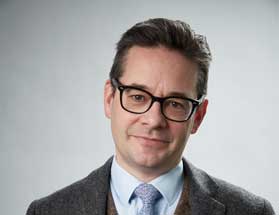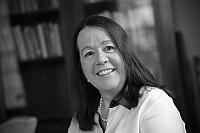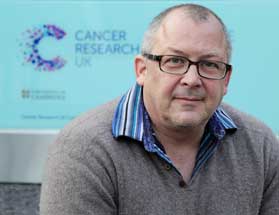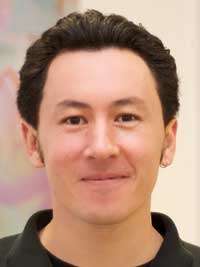
Professor Richard Gilbertson, Professor Christine Watson, Professor Greg Hannon and Dr Jason Carroll have been elected to the prestigious Fellowship of the Academy of Medical Sciences.
Fellows are elected for their contribution to biomedical and health research, the generation of new knowledge in medical sciences and its translation into benefits to society.
The new intake of 46 world leading UK researchers to the Fellowship includes the highest female cohort to date (37%). One of these is Professor Christine Watson, Professor of Cell and Cancer Biology in the University of Cambridge’s Pathology Department. She is a mammary gland biologist who leads a group of scientists researching how the mammary gland develops its specialised function in puberty and adulthood. Her research focus includes searching for the mammary gland stem cells that are responsible for the growth of the milk-producing cells during pregnancy, and investigating how the gland regresses after weaning. By understanding the normal developmental biology of the mammary gland, the better our appreciation of how these processes can go wrong, resulting in breast cancer.
"I am delighted to be elected a Fellow of the Academy of Medical Sciences. I have been fortunate to work with amazing young scientists throughout my career and value this recognition of our contribution to medical science. I will look forward to working with the Academy particularly towards its strategic objectives to engage with the public and to foster the careers of women in medical research." said Professor Watson.
CRUK Cambridge Centre Director, Professor Richard Gilbertson’s research aims to reduce the morbidity and mortality of patients with cancer through improved understanding of tumour biology. His research group, which has a particular focus on children’s brain tumours, is working on improving our understanding of the cellular and molecular origins of cancers and the pathways that drive them.
Professor Gilbertson said: "I am deeply honoured to have received this recognition of our work and feel privileged to join such a wonderful organisation dedicated to promoting excellence in medical science, ultimately for the good of patients. This honour belongs to my many postdocs, PhD students, technicians and wonderful collaborators who over the years who have worked with me to pursue fantastic science. The cadre of scientists elected from Cambridge also reflects the vibrant cancer research community in our city and the terrific support of the clinical school."
Professor Greg Hannon, Group Leader at the CRUK Cambridge Institute, said: "it really is a great honour to be recognized by the Academy, and I look forward to tremendously stimulating interactions with their outstanding group of Fellows." Professor Hannon recently received a highly prestigious CRUK Grand Challenge Award of £20 million to lead an international and multi-disciplinary team that will build a virtual reality interactive map of breast cancer. This ambitious project will enable researchers, doctors and patients to ‘walk around’ inside a tumour, visualising and exploring each individual cell.
Dr Jason Carroll, also a Group Leader at the CRUK Cambridge Institute, said: "I am honoured and delighted to be elected as a Fellow. It's a privilege to join such a wonderful organisation and it reflects the dedication and talent of the people in my lab and my former lab members". Dr Carroll's research focuses on how Estrogen Receptor (ER) causes gene transcription and how this contributes to breast cancer progression. His group is also interested in understanding how breast cancer therapies work and what happens if they fail. They use molecular, genomic and proteomic approaches, with the goal of identifying the critical determinants of tumour progression so that they can develop novel therapies that specifically target them.
This year's elected Fellows have expertise that spans women’s health, immunology, public health and infectious disease among many other fields. The Academy welcomes 54% of the new Fellows from a clinical research background and 46% from basic sciences.
The new Fellows will be formally admitted to the Academy at a ceremony on 28 June 2017. This year’s election brings the total number of Fellows to 1236.


















